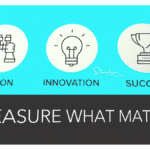One of the workplace trends being talked about is BYO (aka Bring Your Own). I can see where it can make a lot of sense…when it comes to certain things. For example, given the popularity of smart phones, it could be a win-win to ask employees to bring their own. The company saves money by not buying a bunch of phones. They could give employees an allowance to cover a portion of the cost. Employees don’t have to carry two phones. And they use a phone they’re already familiar with.
I’ve also read a few articles about the changing face of education. The first was from Mashable “How Tech Will Transform the Traditional Classroom”. It’s a forward-looking piece about using tablets in school and how it will change teaching and even activities like homework.
The second was on The Huffington Post – “Technology in Schools: In Some Cash-Strapped Districts, Kids Bring Their Own Devices”. The article is exactly what you’d expect. Budget constrained school districts don’t have money to buy computers, so kids bring their own. On one hand, this is creative. On another, it’s setting a dangerous expectation that kids live in households that can afford tablet computers. I could understand if we were talking a $20 Texas Instruments calculator. But tablets aren’t cheap.
Now, there’s talk about Bring Your Own Learning (BYOL). Jane Hart penned a piece about developing a BYOL strategy since “smart, social, autonomous workers are already doing their own thing and solving their own learning and performance problems much more quickly and more easily by using their own tools and devices.” I found Jane’s post to be really thought-provoking and it brought back what I had been reading about BYO from others.
As a training consultant, I have to bring my own devices to my client engagements. And I have to figure out my own professional development needs along with making learning opportunities happen. So I get it conceptually. But it seems like the only way BYO initiatives will really have impact is if they are scalable. One school doing BYO is good – but entire school systems doing BYO is great. Scale offers the opportunity to create strategy.
Which raises bigger questions: Are individuals ready to accept responsibility for bringing their own? Has the education system taught people the principles so they can be successful bringing their own? And are corporations supplying the resources – both financially and otherwise – so employees have the means?
Talk about business BYO needs to be more than a “trend of the day” conversation. And it should center around more than just “technology is our future”. In order for it to be successful, there are serious questions to be resolved.
Image courtesy of HR Bartender








Mary Wright says
BYO devices can cause problems with intellectual property and compensation but I think that ship has long since sailed. This is the first time I’ve read about BYOL. Certainly with advent of iTune University, Udemy, etc., high quality courses are available to anyone with a smart device, and the Millennials are all over it. Self learning is destined to be part of our increasingly transitory, project oriented workforce. Training consultants must be prepared to offer it as a menu selection. Very interesting post, Sharlyn.
Scott Ziegler says
As an educator who happens to be in an HR assignment, I follow the BYO trend pretty closely. To answer your question, “Has the education system taught people the principles so they can be successful bringing their own?” The current answer is “no.” The idea of BYO is still in its infancy. Many districts are embracing the idea and setting up the infrastructure to handle the additional technology but others are rejecting the idea. (New York actually has an ordinance against students bringing tech to school.) Give us another 5 years.
Sharlyn Lauby says
Thanks for the comment Mary. I agree that companies need to start putting guidelines in place when it comes to BYO. I also whole-heartedly agree that self-learning is the wave of the future. Companies are asking employees to play an active role in their own professional development. That includes self-learning.
Scott – thanks for sharing your experience. Great perspective and information! It does raise the question “Can we afford to wait five years?”